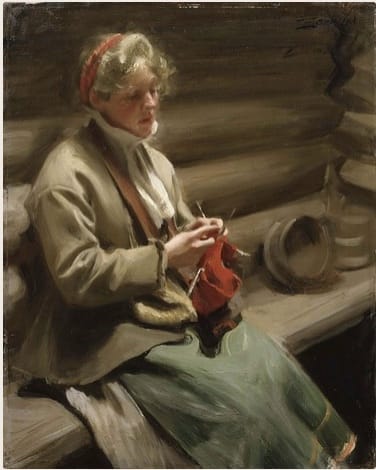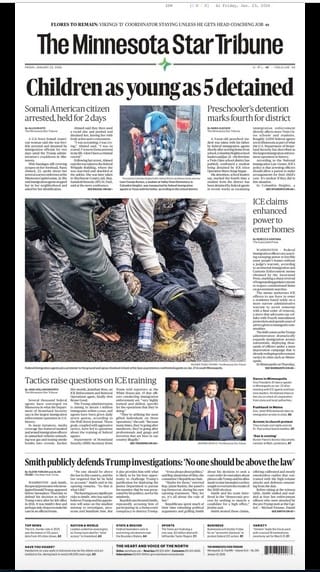Tracks of Time, Learning Curves, and Trains of Thought

This is my seventeenth post here, and I'm officially declaring it the end of the first semester of this 4-year Learn, Imagine, Act project. During my years as a college professor, I felt a lot of institutional pressure to require final exams. But finals never struck me as a particularly useful metric, given everything students had going on at the term's end. I told students that in my courses, the main value of final exams was in the chance it gave them to look back over the course and take stock from their current vantage point. Class materials they had encountered earlier on might take on greater meaning, now that they had acquired a whole repertoire of knowledge and ideas together. Finals provided the impetus for thoughtful review.
That was the theory, anyway. I realize that stock-taking probably gave way to "cramming" more often than not. If I'm honest, I have to say that many students had neither the time nor the readiness to take stock in the way I'd hoped they would. And that is a systemic issue, not just an individual one.
I'm reflecting on these tensions affecting students and to an extent, all of us, as we engage in learning. We are so often caught between time-sensitive external demands, and the internal task of assimilating information, which is more of a maturation process. It takes time to integrate information and allow it to ripen into something deeper—a dawning understanding at least, if not yet a full knowing or wisdom. Such tensions are playing out for me as I want to take stock of what my first semester with the Learn, Imagine, Act project has offered me—and indeed, how it has changed me in various ways—but I also feel the bullet train of news and events about to barrel past without me if I take my eye off of it for too long.
For example, I recently had reason to work my way backwards through the Blue Sky accounts of two commentators, historians whose work I respect. I was looking for a couple of quotes, but couldn't recall exactly when I'd seen them. I finally located the sought-after passages, but I came out of that scrolling session with something more: a fuller understanding of how rapidly and drastically life here has been altered since January. That's a systemic issue, too. The plan for Project 2025 was to hit us hard and fast, to make it difficult to respond effectively.
As I edged through the months of posts, I saw how accelerated the timeline has become. It was like binge-watching several seasons of a TV series, at x2 speed. I kept gasping and muttering, "oh, yeah, that . . ." about individual plot points as they raced by. Disruption— ranging from ridiculous and inane to illegal and democracy-destroying—has been created on an almost ungraspable scale. The rate of change can induce vertigo for anyone who is paying the slightest attention. And it's only July.
My essays here are an attempt to slow things down, gather together informative components that might help flesh out themes and ideas, and illuminate historic connections. I'm trying to track trains of thought and peering more deeply into the workings of systems. I'm learning so much, but am ever more aware of how ignorant I still am. The need to fill in the gaps in our education seems more pressing than ever, as we see books and words banned, history erased, and funding for education and research slashed.
Everything that we can learn (and protect from) this "endarkenment" can also help arm us to take stronger actions. I hope Finding Throughlines can be a resource, serving an informational purpose for others who don't have the time to read whole books or multiple articles, or monitor the stream of events being discussed on social media, such as this recent post on Instagram from George Takei, about the banning of his memoir in the state of Tenessee:
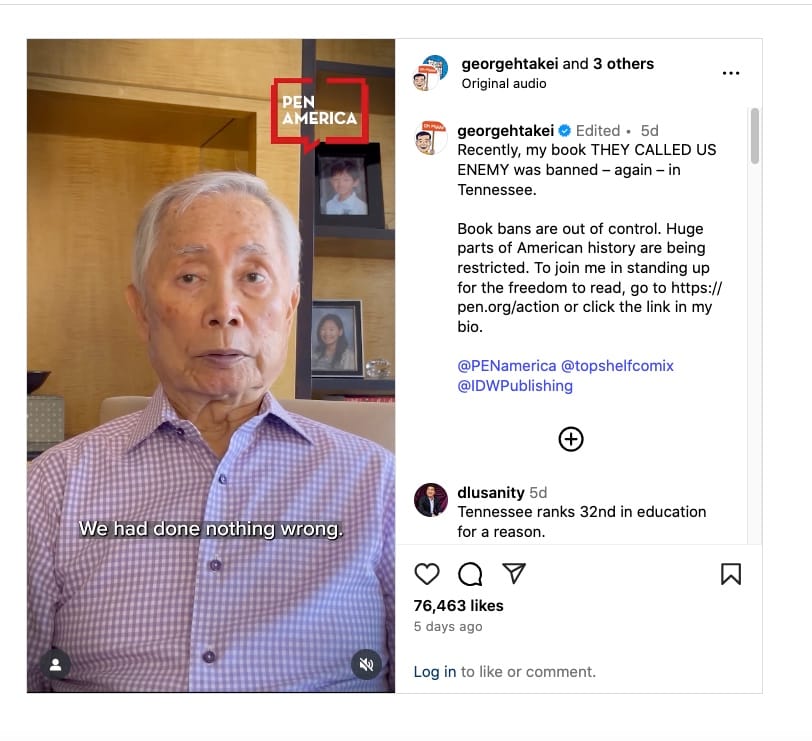
https://www.instagram.com/reel/DL-1hIxPUCX/
I've got a summer reading list lined up, in anticipation of the second semester: books about the 1920s resurgence of the Klan in the midwest, the rise of white Christian nationalism, the history of detention and concentration camps. As antidotes, I also want to keep bringing in positive infusions from craftivism and other forms of activism. Elizabeth Sawin's Multisolving: Creating Systems Change in a Fractured World is one example I'm looking forward to sharing with you.
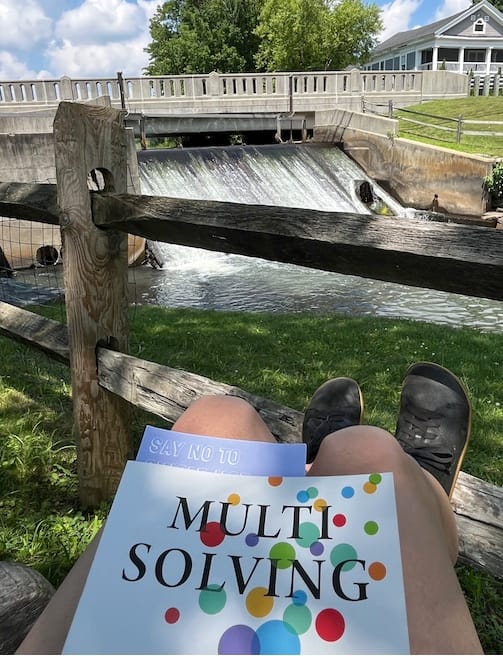
I expect I'll try to slow things down a bit for myself for the rest of the summer, though, as I also take the next steps in another writing project. I'm working on a middle-grades trilogy about kids organizing to make change at the community level. This imaginative act of creating another vision for our future is one reason I can even bear to spend so much time delving into our more sordid past and present.
I've just finished drafting the penultimate chapter of Book 3! I'm looking forward to wrapping up with the grand finale and working on revisions. Plus, there's the exhilarating prospect of composing a supplemental field guide and activity book for families, geared to the trilogy's content. These projects act as lighthouses and creative anchors in our storm-filled seas.
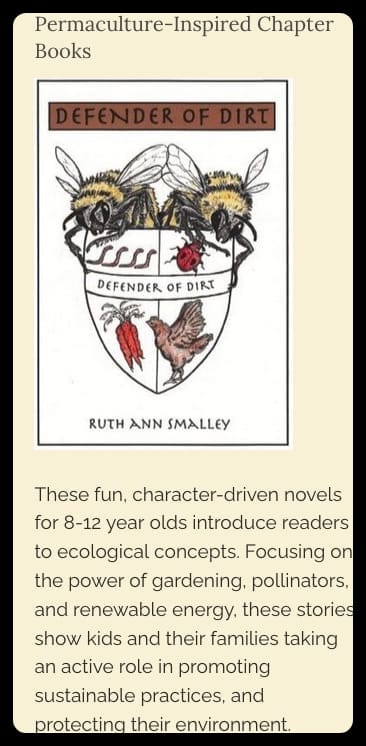
So, I'm not sure whether I'll be giving myself a final exam here at Finding Throughlines, or what form my posts will take over the next several weeks. I'm also looking for ways to expand the reach of my existing posts. I'd appreciate any feedback or ideas you may have.
Thank you for reading, and may you, too, have time for taking stock, as well as the tools and support you need for creating the better future you envision. I hope we can work on this together.

